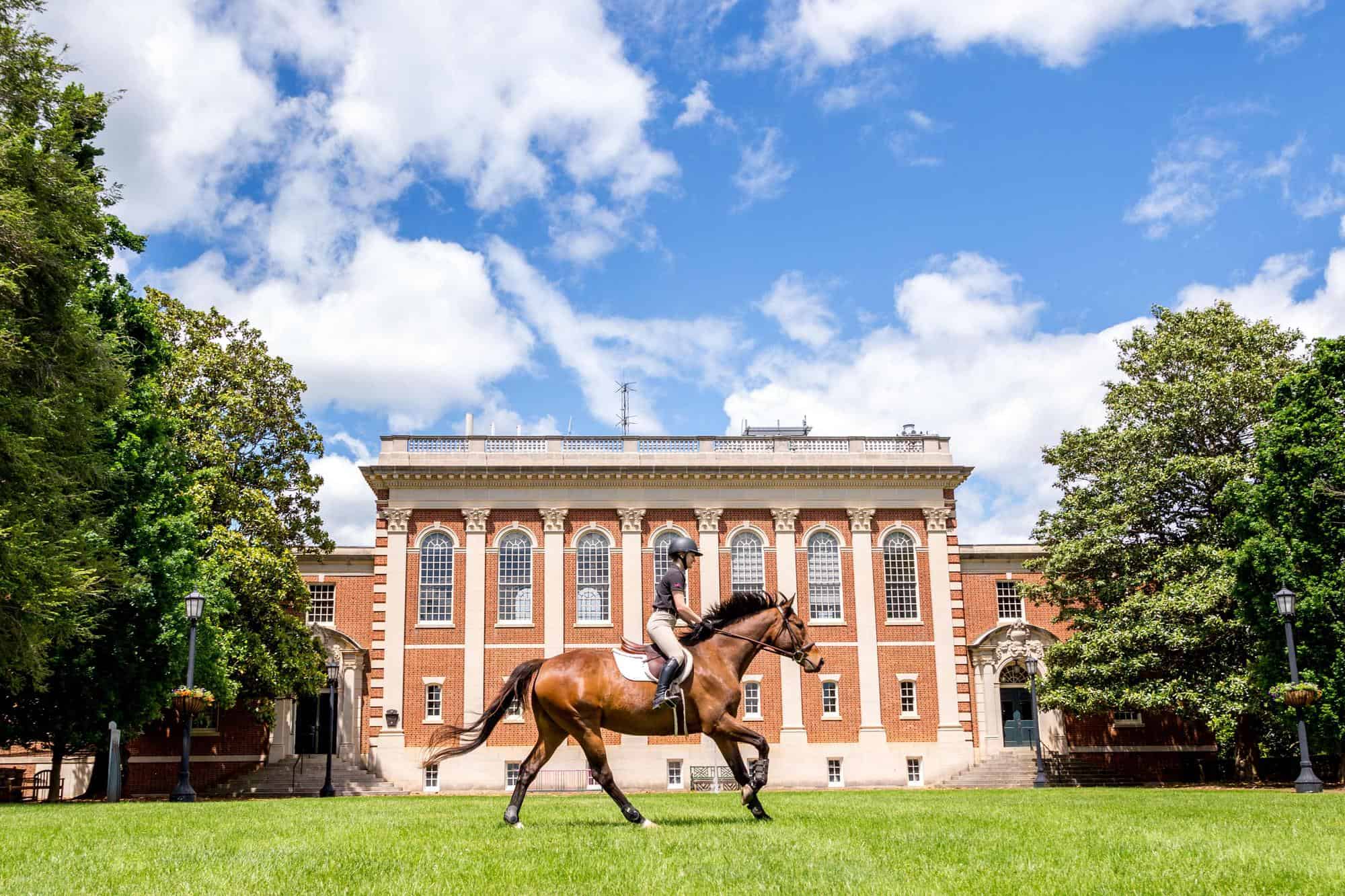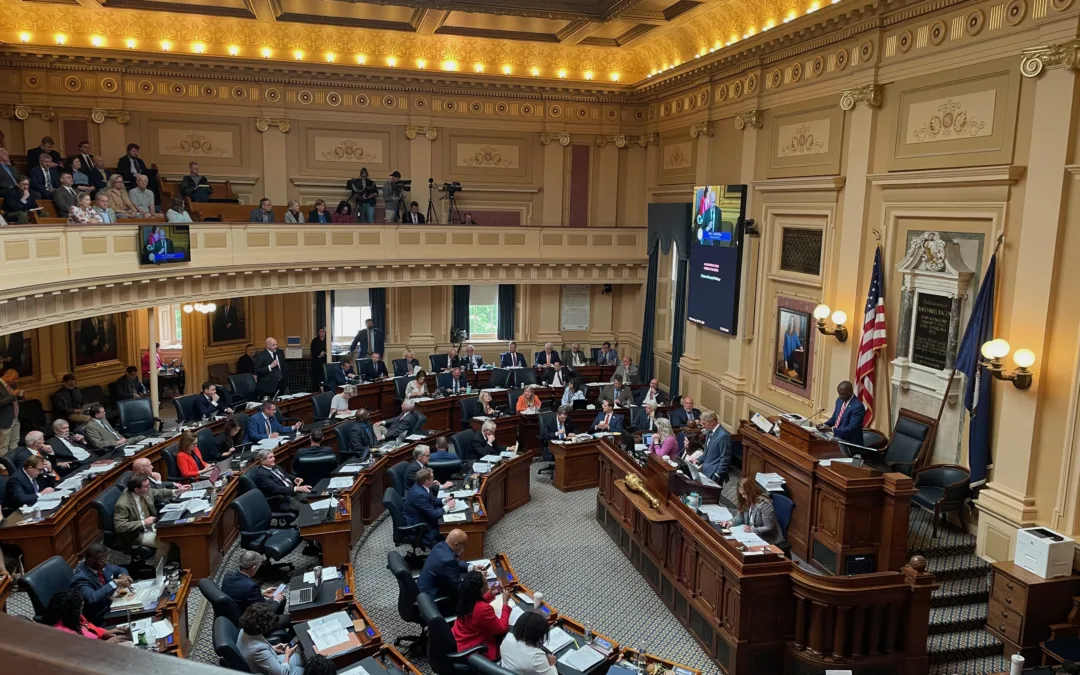
Photo Courtesy of Sweet Briar College
Colleges for women sprang up in Virginia during the 1800s and 1900s, but only two remain in 2022.
There are only a handful of women’s colleges left in Virginia, despite there being more than 20 historically in existence.
While close to half of the women-only schools closed—like Blackstone College in Blackstone, Chesapeake Female College in Hampton, and Martha Washington College in Abingdon—others shifted their enrollment requirements and became coeducational colleges or merged with existing coed schools.
Coed colleges with lady-only beginnings are sprinkled throughout the commonwealth. For example, Averett University was founded in Danville in 1859 as a Baptist women’s college. When it was founded in 1891, Randolph College in Lynchburg was called Randolph-Macon Woman’s College. The University of Mary Washington in Fredericksburg initially served as the State Normal and Industrial School for Women in 1908.
Nowadays, there are only two women-only colleges in the commonwealth — both offer graduate courses to men and women.
Sweet Briar College
Sweet Briar College in Sweet Briar was founded in 1901 following the death of a woman named Indiana Fletcher Williams one year prior. Williams left her estate to found the college in memory of her deceased 16-year-old daughter, Daisy.
In 1906, Sweet Briar College opened with 51 students, all women. Out of the first five graduates, three went on to pursue advanced degrees.
In 2015, Sweet Briar College faced a scary situation. Without warning, the school’s president at the time announced that the institution would close after the spring semester.
The announcement shocked students, alumnae, and faculty alike—as well as the community that rallied to save the school. The Saving Sweet Briar movement became a successful venture that not only extended the college’s offerings past the spring semester, but also reinvented the school for future generations.
Implementing a 10-course Leadership Core curriculum following the lady-led movement, the college emphasized the importance of teaching students to harness and apply their natural leadership abilities.
Despite the scare in 2015, Sweet Briar College remains a powerful force in education in Virginia and across the country. In 2021, the college was named as one of the nation’s Most Innovative Schools, according to the 2021 Best Colleges rankings by U.S. News & World Report.
Hollins University
Ironically, one of the two surviving women’s colleges in Virginia didn’t start out that way. When Valley Union Seminary was established in 1842, it was a coeducational college. It wasn’t until 1846 when Charles Lewis Cocke became principal and business manager that things started to change.
Six years after Cocke’s appointment, the school eliminated its male department and became an institution for women. You might know it better as Hollins University in Roanoke.
Hollins University now offers 29 undergraduate majors to women, 18 coed graduate and certificate programs, and study abroad options.
The school has been twice named to the list of 25 Colleges With the Best Professors by the Center for College Affordability and Productivity. Hollins University also ranked #16 among the country’s Top Performers on Social Mobility and #32 on the list of Best Value Schools, according to the new U.S. News 2022 Best Colleges.
Formerly Female
Prior to 2017, there were three women’s colleges in Virginia.
Originally founded in Staunton as Augusta Female Seminary in 1842, Mary Baldwin University will celebrate its 180th birthday this year. Renamed in 1895 after a graduate of the school who led the seminary during the Civil War era, that was just one of the changes the school would face in its history. Another historic event occurred at the formerly female university in the 2010s.
Mary Baldwin University came under fire in the previous decade when—without first consulting students or faculty—the institution announced that some courses would extend to men, also meaning that starting in 2017, some men would live on campus. The decision made some alumnae question whether or not the coeducational offerings still designated Mary Baldwin University as a women’s college, despite the presence of coed day students and graduate students since the mid-1970s.
The change came in light of significant enrollment decreases totaling approximately 100 students over a two-year timespan. At the time of the announcement, the loss accounted for under 10% of the college’s student population of around 1,300. Since the change, enrollment rose again to 1,477 in 2020 with 20% of students being male.
On its website, Mary Baldwin University now defines itself as “a distinctive small university committed to its rich heritage as an inclusive, women-centered college.” The website also notes that Mary Baldwin University provides undergraduate, graduate, and professional education to both women and men, expressly calling itself a “coeducational university.”
Politics

Youngkin, Democrats to start over on budget talks
The Republican governor stood with Democratic leaders in the General Assembly on Wednesday in a bid to ease tensions over their budget debate....

VIDEO: Domestic abuse victims speak out against the gun law bills Gov. Glenn Youngkin vetoed
Senate Bill 47 and House Bill 46 aim to close the loophole that allows offenders to transfer their firearms to someone else instead of relinquishing...
Local News

Virginia verses: Celebrating 5 poetic icons for National Poetry Month
There’s no shortage of great writers when it comes to our commonwealth. From the haunting verses of Edgar Allan Poe, who found solace in Richmond's...

Join the fun: Recapping Family Literacy Night’s storybook adventures
When’s the last time you read a book aloud with a loved one? If it’s difficult to answer that question, then maybe it’s time to dust off that TBR...





